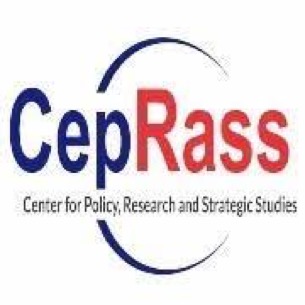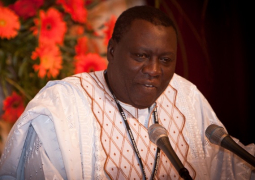
CepRass as part of efforts to strengthen democracy in The Gambia recently conducted surveys focusing on the performance of Barrow since re-election and the parliamentary election aimed at bringing to light key governance issues in the run up to the 9th April polls.
Presenting the findings funded by National Endowment for Democracy (NED) on Wednesday at NaNA Conference Hall, Dr. Mustapha Jobateh, senior consultant for CepRass, said 66% of respondents interviewed disagree that The Gambia government is committed to addressing corruption.
On health, the survey revealed that 52 percent disagree or think otherwise that government plans to increase access to health services.
On Education, the survey revealed that 60 percent of respondents said The Gambia education does not prepare students for job market.
“Prices have been increasing rapidly since the re-election of President Barrow in December 2021. The government, though the Central Bank and its fiscal policy stands, can trigger price stability. However, 85 percent of respondents either disagree or strongly disagree that the government has done enough to stabilize prices,” the survey reveals.
Agriculture retains a critical role in economic growth in The Gambia, even as the share of services in GDP is increasing. Agriculture and related industries contribute to economic growth, employment, poverty reduction, food security and nutrition but when asked if government is committed to supporting farmers, a substantial majority of respondents said they either disagree or strongly disagree.
Farmers in The Gambia have said in the past that they will not sell their groundnuts to government on the grounds that government usually buys their groundnuts at a very low price.
Crime levels in The Gambia have been relatively low historically. However, the National Guard was called on in June 2021 to stage day and night patrols in multiple areas in support of the police, in response to a surge in murder and armed robbery. About 76% have reported that the level of domestic crime rate has either increased or increased rapidly.
Security Sector Reform has been implemented in The Gambia since 2017. Policy framework has also been developed. However, 41 percent of respondents either disagree or strongly disagree that government is still interested in Security Sector Reforms.
On decentralisation, most respondents said government is not interested in subventing Local Governments.
Half of respondents also said Gambia’s bilateral relations with Senegal are exploitative and not beneficial to The Gambia. Forty-nine percent of respondents believe that government is not committed to women in leadership. Fifty-two percent of respondents declared that government performance on youth development is poor.
The Center for Policy, Research and Strategic Studies (CepRass) is an academic and policy research institute based in The Gambia. The Institute is mainly engaged in research, consultancy and training for private and public institutions within and outside The Gambia.




